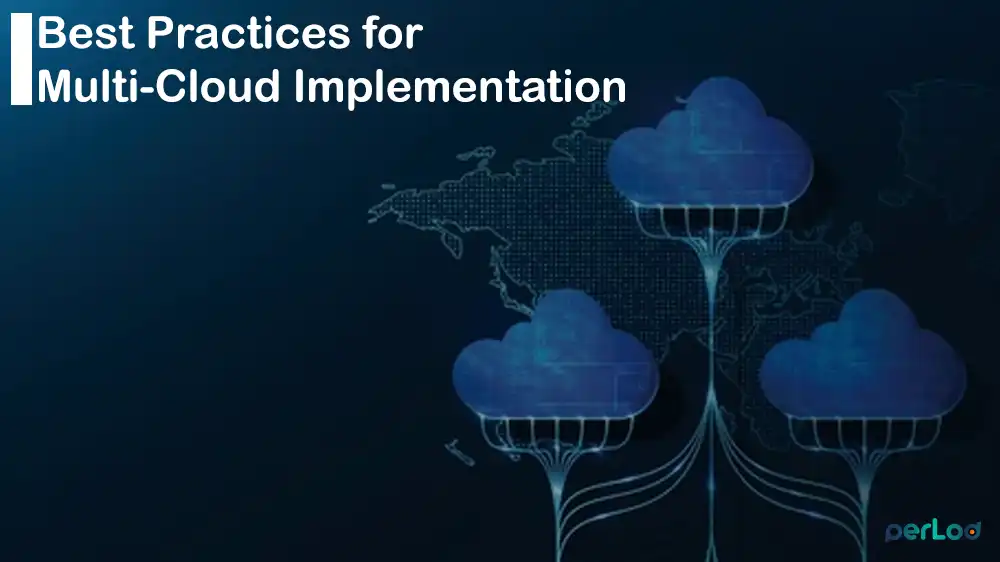
Multi Cloud Hosting 2025: The Ultimate Guide for Businesses
With the rise of remote work, global operations, and massive amounts of data, companies need reliable, scalable, and secure solutions. Multi cloud hosting 2025 is the new and most effective strategy for businesses that want to maximize flexibility, efficiency, and performance.
Multi-cloud hosting allows organizations to avoid vendor lock-in, improve disaster recovery, and optimize costs.
In this article from PerLod Hosting, we will explore the benefits, challenges, security considerations, and best practices for multi-cloud hosting in 2025. We will also look at practical strategies such as disaster recovery planning, compliance, cost optimization, monitoring, and vendor management.
Whether you need flexible VPS hosting plans, powerful dedicated servers, or high-performance GPU dedicated servers, combining them with multi-cloud hosting can give your business a major advantage.
Table of Contents
Benefits and Challenges in Multi-Cloud Hosting
Choosing a multi cloud strategy comes with lots of advantages. Companies and businesses are choosing multi cloud hosting 2025 to stay competitive. Here are the main reasons.
Benefits of multi-cloud management:
- Flexibility and Choice: One of the main benefits of multi-cloud hosting is flexibility. By using multiple clouds, businesses can pick the best solution for each workload. For example, a company may use one provider for machine learning services while using another for storage solutions.
- Reduced Risk and Downtime: Multi-cloud hosting helps to reduce risk and downtime. By distributing workloads across multiple providers, businesses ensure that critical applications continue running even if one provider has an issue. This redundancy is best for 24/7 operations.
- Improved Performance: By choosing the right multi-cloud provider based on geographic location, like PerLod GPU Dedicated Server, latency can be minimized, and user experience can be enhanced. This is important for global businesses serving customers in multiple regions.
- Access to Advanced Tools: Each cloud providers offer unique tools and services. Multi-cloud hosting allows businesses to take advantage of these tools and new features without being restricted to a single provider’s ecosystem.
While multi cloud hosting 2025 offers many advantages, it is not without challenges. Here are the challenges businesses must be aware of.
Challenges of multi-cloud management:
- Increased Complexity: As you must know, each provider has its own interface, APIs, pricing, and support structure. Because of this, managing multiple cloud providers can be complex.
- Integration Issues: Different cloud platforms may not always work seamlessly together. Because of this, integration between systems can be challenging.
- Skills and Expertise: To manage multi-cloud infrastructure, businesses must have an expert IT team for handling multiple platforms, managing security, and optimizing performance.
- Cost Management: While multi-cloud hosting can optimize costs, if it is not managed properly, it can lead to overspending. Smaller workloads or testing environments can be optimized with PerLod VPS hosting plans.
Security Considerations For Multi-Cloud Management
In multi cloud hosting 2025, organizations must take essential steps to secure their data and applications. Security is a critical factor for any cloud strategy. Here are some security considerations:
Data Encryption and Protection: Data must be encrypted, which prevents unauthorized access, especially when data is distributed across multiple clouds.
Access Control and Identity Management: Manage who can access data and apps. Apply access control policies and multi-factor authentication. This will ensure only authorized personnel can access sensitive information.
Compliance and Regulations: When businesses want to use multiple cloud providers, they must ensure compliance with all relevant regulations, such as GDPR in Europe or CCPA in California. Multi-cloud hosting allows for storing data in specific regions to meet compliance requirements.
Threat Detection and Incident Response: Use monitoring tools to detect unusual activity, potential breaches, or misconfigurations. With a powerful incident response plan, threats are handled quickly, and the potential damage is minimized.
Best Practices for Multi-Cloud Implementation
For Multi-Cloud Implementation, businesses should follow best practices with planning, execution, and management. It maximizes the benefits of multi-cloud hosting 2025.

Multi-Cloud Disaster Recovery Plan
Disaster recovery (DR) is a key part of multi-cloud hosting. By distributing workloads across clouds, businesses can reduce downtime during outages. If one provider fails, workloads can be shifted to another without downtime. DR planning includes:
- Data Backups: Regular backups across different clouds.
- Failover Systems: Automatic switching to backup systems if a primary system fails.
- Testing and Simulation: Periodic testing of disaster recovery plans to ensure effectiveness.
Multi-cloud DR solutions reduce the risk of data loss. For mission-critical workloads, PerLod Dedicated Servers ensure maximum uptime and control.
Multi-cloud Compliance Across Regions
As businesses expand globally, compliance becomes more complex. Multi cloud hosting 2025 makes it possible to store data in specific regions that meet local regulations.
- GDPR: European data must be stored in European data centers.
- CCPA: California-specific regulations require strict data protection measures.
- Industry Standards: Health (HIPAA), finance (PCI-DSS), and other industries have strict rules that multi-cloud hosting can address.
Compliance is essential for avoiding penalties and building customer trust.
Cost Optimization Techniques in Multi-cloud Hosting
Monitoring usage and costs between multiple cloud providers is different. Effective techniques include:
- Resource Right-Sizing: Match computing resources to actual needs to avoid waste.
- Reserved and Spot Instances: Use cost-saving instances for predictable workloads.
- Automated Scaling: Automatically adjust resources based on demand.
- Usage Monitoring: Track cloud usage and optimize or eliminate underutilized resources.
Monitoring in Multi-cloud Hosting
Monitoring is an essential task for managing multiple cloud environments. By using observability tools, the IT team can track system performance and uptime, detect errors in real-time, generate actionable insights for optimization, etc.
Vendor Management Strategies in Multi-cloud Hosting
Working with multiple cloud providers requires strong vendor management. It requires careful management, including evaluating SLAs, communication, performance tracking, and risk management.
Strong vendor management increases reliability, security, and efficiency across clouds.
What is the Difference between Hybrid Hosting and Multi-cloud?
In the Hybrid Hosting Trends, we discuss what Hybrid Hosting is and why it is growing fast. Now we want to see the main difference between these two hosting models.
Hybrid hosting integrates a private cloud with a single public cloud to create a single and flexible environment. In contrast, multi-cloud hosting is a strategy that gets services from multiple cloud providers like PerLod, Google Cloud Provider, etc, to avoid vendor lock-in and achieve better performance by using assets across different platforms.
Final Words
By using multiple cloud providers, businesses can achieve flexibility, better performance, improved disaster recovery, and cost optimization. However, it requires careful planning, security measures, and management practices.
We hope you enjoy the “Multi cloud hosting 2025” article. Combine your multi-cloud hosting with our PerLod Hosting Services to unlock maximum performance, reliability, and scalability. Subscribe to our X and Facebook channels to get the latest hosting trends and insights.
